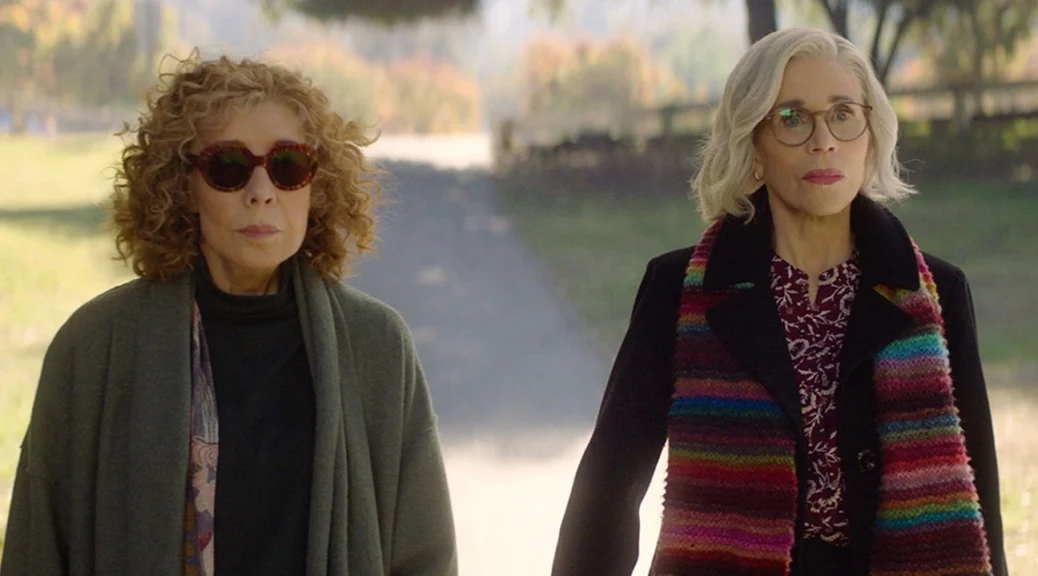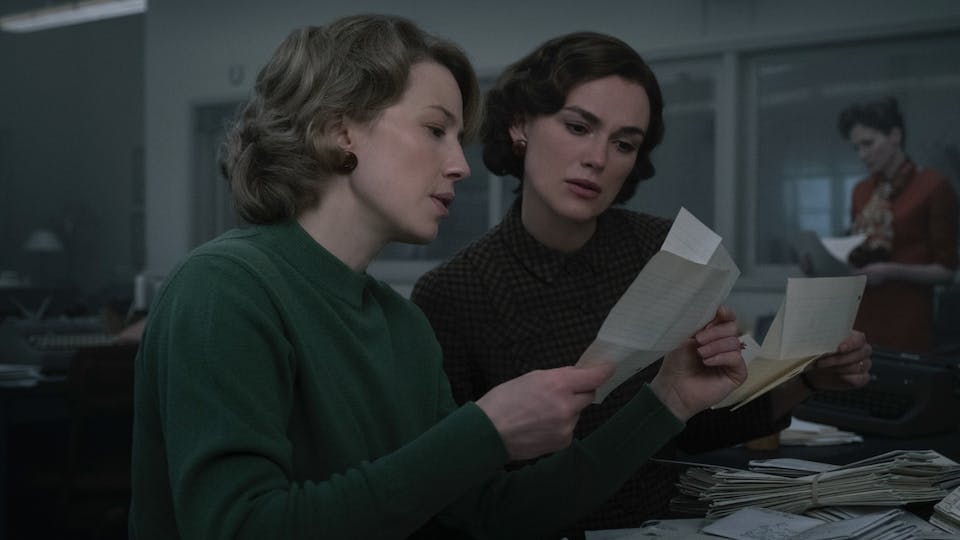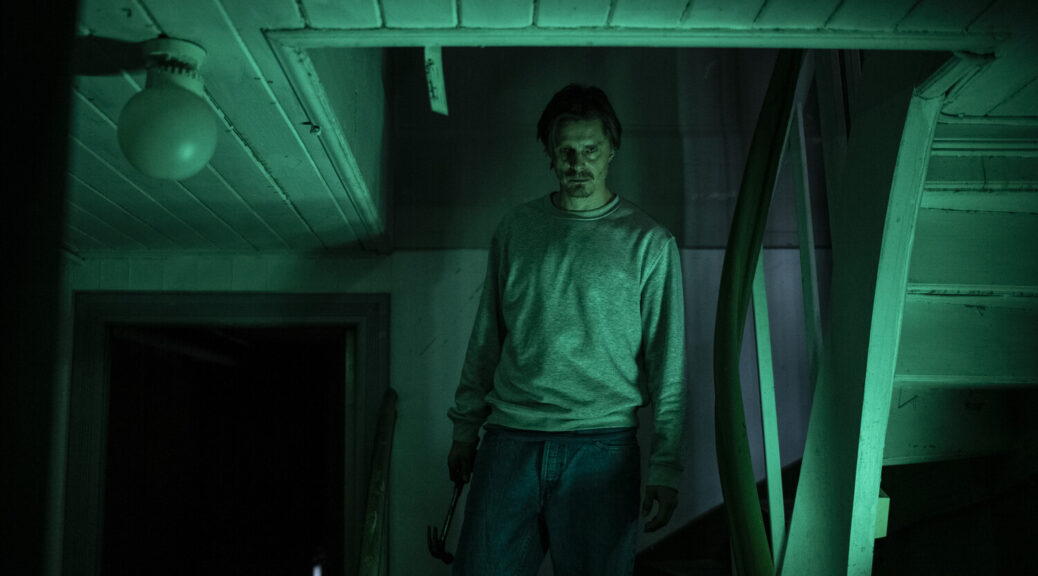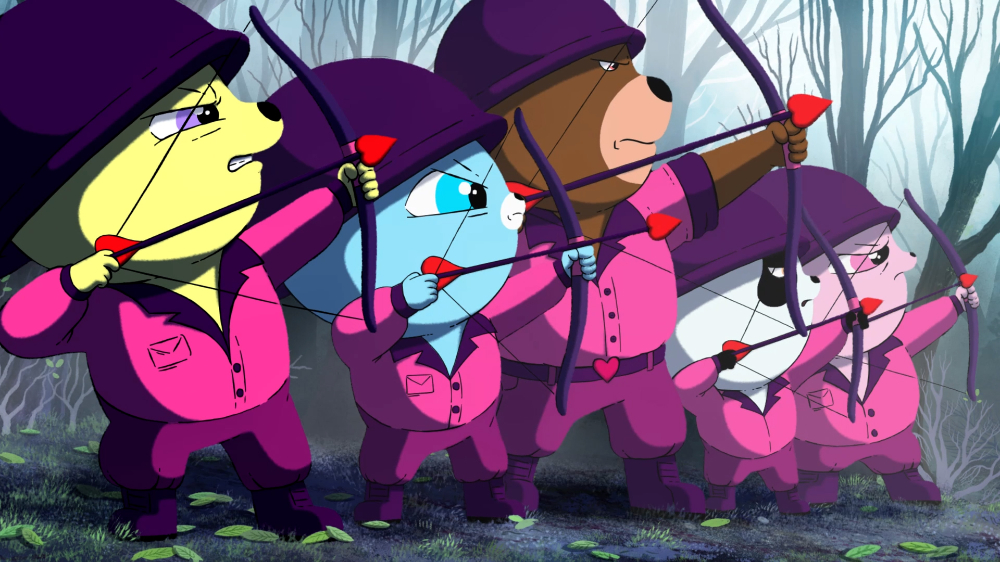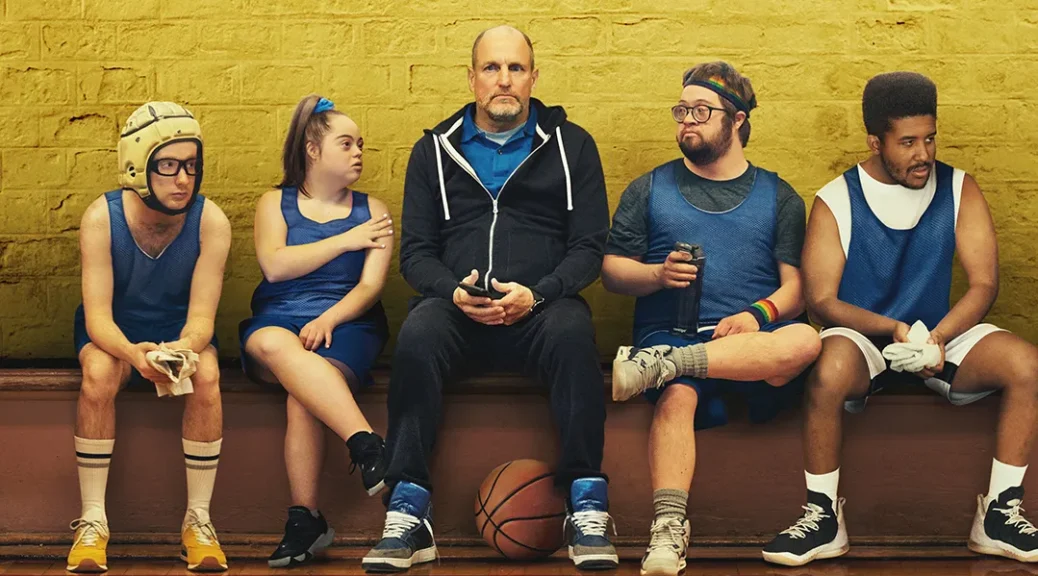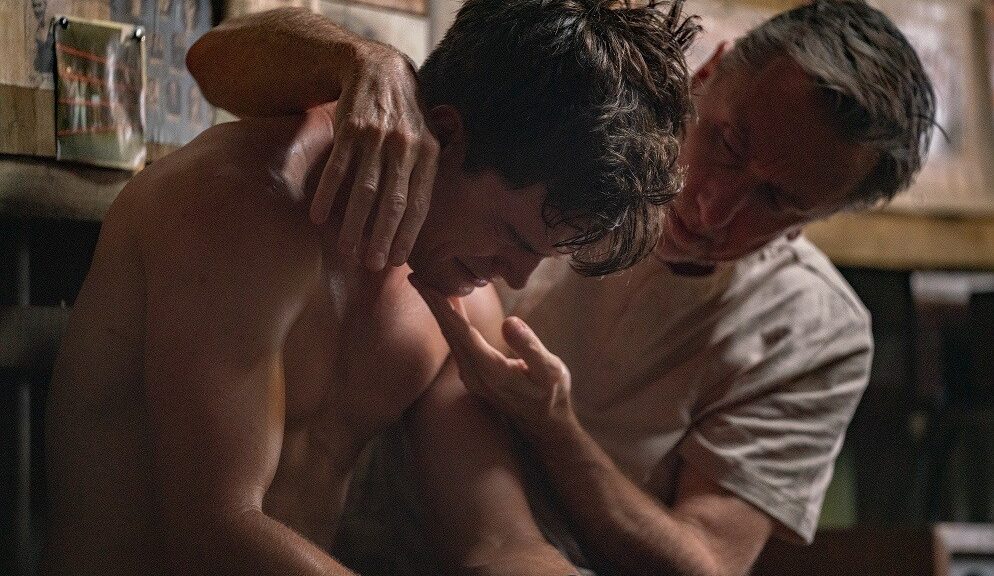Moving On
by Hope Madden
Lily Tomlin and Jane Fonda like each other, this is clear. And mainly that’s meant good things for audiences. Their treasure 9 to 5 was smarter, funnier and more feminist than anything else 1980 was likely to see. They had seven solid seasons as besties on Netflix’s Grace and Frankie.
Yes, we did have to sit through 80 for Brady, but at least that got adults back into theaters.
For Paul Weitz’s Moving On, the pair tosses aside broad comedy showcasing the hilarity of getting old in favor of something more insightful and less insulting.
Fonda plays Claire, in town from Ohio to go to her best friend’s funeral and murder the widower (Malcolm McDowell, as reliable a villain as ever). At the service, Claire runs into another old friend with no love lost for the old man, Evelyn (Lily Tomlin).
Maybe Evelyn will help!
As contrived and zany as that sounds on paper, in action it’s a relatively nuanced look at modern problems that aren’t really that modern. And though the story is overstuffed, Weitz (who also writes) and his leads draw attention to subtler comedy laced with the melancholy realities facing seventy- and eighty-somethings.
Fonda dials down the horny hijinks she seems to bring to every new role, and the tender evolution of Claire’s love life is far richer for it. Tomlin is Tomlin: eccentric, unaffected, maybe stoned, easily the coolest person in the room.
Part of what makes this duo so fun to watch is the way they balance each other out, and though the characters are allowed more room to breathe than usual, the result is the same.
Richard Roundtree charms as Claire’s ex, while Sarah Burns is the glue holding the film together portraying the bereaved adult daughter and only rational thinker.
Weitz tacks on a side story about a kid who likes to visit Evelyn and borrow her earrings, but the result is undernourished and adds little to the narrative. Tomlin’s great in these scenes, though, but even better in scenes on her own illustrating loneliness as it’s rarely been done.
What a refreshing film Moving On is. Not a great film, but a genuine piece of entertainment made for actors who deserve a project like this.
